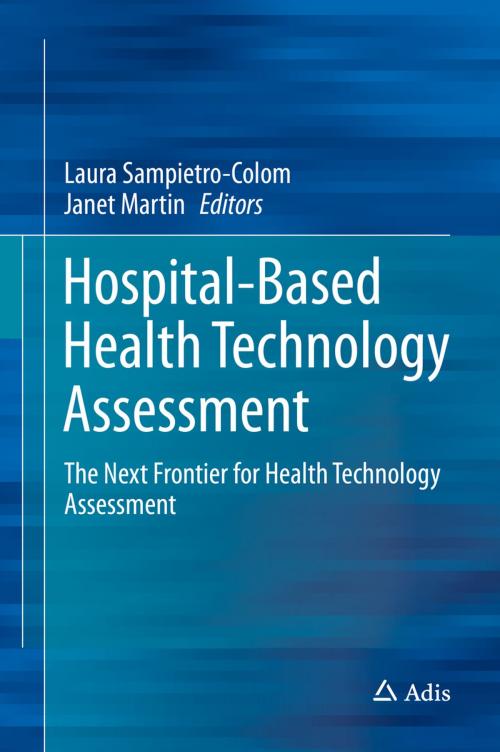Hospital-Based Health Technology Assessment
The Next Frontier for Health Technology Assessment
Nonfiction, Health & Well Being, Medical, Medical Science, Pharmacology, Reference, Public Health| Author: | ISBN: | 9783319392059 | |
| Publisher: | Springer International Publishing | Publication: | January 23, 2017 |
| Imprint: | Adis | Language: | English |
| Author: | |
| ISBN: | 9783319392059 |
| Publisher: | Springer International Publishing |
| Publication: | January 23, 2017 |
| Imprint: | Adis |
| Language: | English |
A timely work describing how localized hospital-based health technology assessment (HB-HTA) complements general, ‘arms-length’ HTA agency efforts, and what has been the collective global impact of HB-HTA across the globe. While HB-HTA has gained significant momentum over the past few years, expertise in the field, and information on the operation and organization of HB-HTA, has been scattered. This book serves to bring this information together to inform those who are currently working in the field of HTA at the hospital, regional, national or global level. In addition, this book is intended for decision-makers and policy-makers with a stake in determining the uptake and decommissioning of new and established technologies in the hospital setting.
HTA has traditionally been performed at the National/Regional level by HTA Agencies, typically linked to governments. Yet hospitals are the main entry door for most health technologies (HTs). Hospital decision-makers must undertake multiple high stakes investment and disinvestment decisions annually for innovative HTs, usually without adequate information. Despite the existence of arms-length HTA Agencies, inadequate information is available to hospital decision-makers either because relevant HTA reports are not yet released at the time of entry of new technologies to the field, or because even when the report exists, the information contained is insufficient to clarify the contextualized informational needs of hospital decision makers. Therefore, there has recently been a rising trend toward hospital-based HTA units and programs. These units/programs complement the work of National/Regional HTA Agencies by providing the key and relevant evidence needed by hospital decision makers in their specific hospital context, and within required decision-making timelines. The emergence of HB-HTA is creating a comprehensive HTA ecosystem across health care levels, which creates better bridges for knowledge translation through relevance and timeliness.
A timely work describing how localized hospital-based health technology assessment (HB-HTA) complements general, ‘arms-length’ HTA agency efforts, and what has been the collective global impact of HB-HTA across the globe. While HB-HTA has gained significant momentum over the past few years, expertise in the field, and information on the operation and organization of HB-HTA, has been scattered. This book serves to bring this information together to inform those who are currently working in the field of HTA at the hospital, regional, national or global level. In addition, this book is intended for decision-makers and policy-makers with a stake in determining the uptake and decommissioning of new and established technologies in the hospital setting.
HTA has traditionally been performed at the National/Regional level by HTA Agencies, typically linked to governments. Yet hospitals are the main entry door for most health technologies (HTs). Hospital decision-makers must undertake multiple high stakes investment and disinvestment decisions annually for innovative HTs, usually without adequate information. Despite the existence of arms-length HTA Agencies, inadequate information is available to hospital decision-makers either because relevant HTA reports are not yet released at the time of entry of new technologies to the field, or because even when the report exists, the information contained is insufficient to clarify the contextualized informational needs of hospital decision makers. Therefore, there has recently been a rising trend toward hospital-based HTA units and programs. These units/programs complement the work of National/Regional HTA Agencies by providing the key and relevant evidence needed by hospital decision makers in their specific hospital context, and within required decision-making timelines. The emergence of HB-HTA is creating a comprehensive HTA ecosystem across health care levels, which creates better bridges for knowledge translation through relevance and timeliness.















